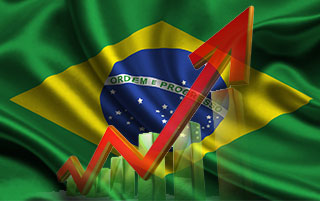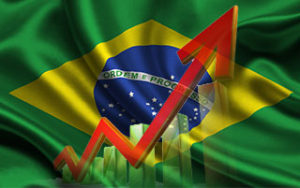After months of bad news, suffering through corruption scandals, political crises and stubbornly low commodity prices, Brazilian markets finally get a breather. Although commodity prices have not recovered significantly, and the political corruption scandals still cast a long shadow over the Brazilian economy, there have been some positive news as of late that have helped the Ibovespa rise. Vale, Petrobras and Embraer are among the prominent stocks that were ticking up higher on Monday, but this can still prove to be a short lived market expansion.
Brazil still faces multiple challenges. The economic slow-down in China, as well as the oil glut are the main international headwinds that Brazilian corporations will have to overcome. Regionally, South America as a whole displays much of the same stagnation that Brazil does. South American economies rely mainly on commodity sales to China and other industrialized countries, but the slowdown in economic growth world-wide has taken its toll.
The Brazilian economy, despite being more diversified than many of its regional peers, has been unable to shake the commodity slump. Its political echelon is mired in controversy just like that of many of its neighbors’ governments. Corruption scandals are still raging and threaten to engulf Michel Temer’s government, just as much as they tarnished the government of his predecessor, Dilma Rousseff. This only adds to the downside risk that investments in the Ibovespa carry.
Brazil does have great economic potential, and within the emerging market sector, given current stock prices and the weakness of the Real, it represents an incredible investment opportunity that should be taken seriously. However investors should be cautious and take this recent market surge within the context of a sluggish world economy. It is still doubtful that Brazilian markets will be able to enter into a new period of sustained growth if commodity prices don’t recover.
All these factors including Monday’s Ibovespa surge, might result in more volatility. The risks are still there and Brazil needs massive economic reforms to be able to sustain its economic gains and reduce its dependence on commodities. For now, this sudden surge should be viewed as an isolated incident, yet it should also serve as a signal that Brazilian markets can turn around quickly.





